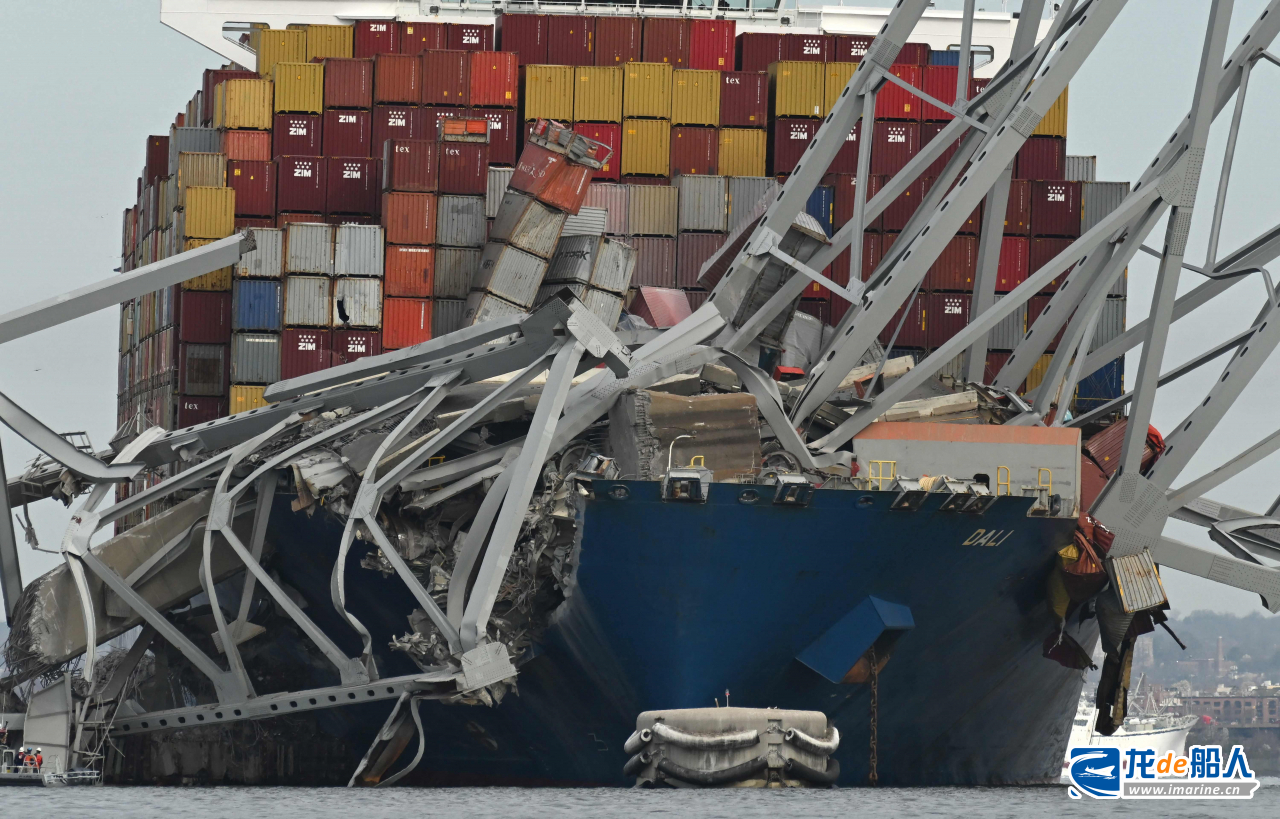A new development has emerged in the lawsuit stemming from the collision of the container ship Dali with a U.S. bridge.
More than two months after being sued by the shipowner on grounds of “design and manufacturing defects in the vessel,” HD Hyundai Heavy Industries has filed a defense against the lawsuit, arguing that the local court lacks jurisdiction. The company is seeking dismissal of the lawsuit concerning liability for the U.S. bridge collision incident.

According to U.S. legal media outlet Law360 and the U.S. District Court for the Eastern District of Pennsylvania, Hyundai Heavy Industries filed a motion to dismiss its lawsuit with the court on October 22 local time. The lawsuit stemmed from the globally watched collision involving the container ship “Dali” with the Baltimore Bridge in the U.S., which caused billions of dollars in damages.
As the shipbuilder responsible for constructing the “Dali” and the manufacturer of its main engine (B&W 9S90ME-C9) and auxiliary engine (HIMSEN 9H32/40HD), HD Hyundai Heavy Industries is in dispute with the vessel’s owner and management company—Grace Ocean Private and Synergy Marine (hereinafter referred to as “the plaintiffs”)—regarding liability for the bridge collision incident.
On July 31 this year, the plaintiff filed a lawsuit against HD Hyundai Heavy Industries in the District Court for the Eastern District of Pennsylvania, alleging that “HD Hyundai Heavy Industries had defects in the design of the switchboard, resulting in loose wiring connections, making it impossible to verify their safety, and the possibility of disconnection during normal operation, causing the signal line to fail to maintain a firm connection with the terminal. This design defect caused the switchboard and the vessel itself to be in an unreasonably dangerous and defective state after delivery.” It also emphasized that “the major defects in the design and manufacturing process of the ship’s switchboard were the core cause of the accident.”
It’s worth noting that the plaintiff’s allegations of design and manufacturing defects at HD Hyundai Heavy Industries are not fabricated. The investigation team, comprised of the U.S. National Transportation Safety Board (NTSB) and the U.S. Coast Guard (USCG), among others, focused their investigation into the cause of the collision on the vessel’s power supply system, key switchboards, and electrical system distribution panels.
In June 2024, the NTSB identified a “control circuit interruption” related to the main circuit breaker. Subsequent reports indicated that wiring inspections of the transformer and relays revealed “loose cable connections”. Representatives from HD Hyundai Heavy Industries, the shipbuilder, noted that such conditions could cause an open circuit and interrupt the 110VDC power supply on the high-voltage side of the distribution panel. According to the report, engineers stated this would trigger an undervoltage release trip, resulting in a 440V power outage, which was demonstrated in subsequent testing.
In response to this allegation, HD Hyundai Heavy Industries argued that the U.S. District Court for the Eastern District of Pennsylvania lacks jurisdiction. The company maintains that its headquarters are located in South Korea, it currently conducts no business operations in Pennsylvania, and has not generated revenue in the state for at least a decade. Therefore, the court lacks the legal basis to hear the lawsuit.
However, the plaintiff countered that while HD Hyundai Heavy Industries is a South Korean company, it is also registered in Pennsylvania, and the parties will contest jurisdiction based on the foreign enterprise registration number.
Should HD Hyundai Heavy Industries’ jurisdictional claim prevail, the litigation will take a new turn. The plaintiffs’ claims seeking to hold HD Hyundai Heavy Industries liable will inevitably lose their validity.
Earlier reports indicate that the bridge collision occurred around 1:30 a.m. on March 26, 2024. The vessel “Dali”, which was preparing to sail to Sri Lanka, struck the Francis Scott Key Bridge in Baltimore, Maryland, U.S., as it departed the port.
The accident caused a major collapse of the famous American bridge, killing six people. The wreckage and 50,000 tons of the bridge’s remains blocked the waterway, bringing all shipping in the Port of Baltimore to a standstill.
The Dali was laid down by Hyundai Heavy Industries in July 2014 and delivered in March 2015. Beyond the jurisdictional issues mentioned by HD Hyundai Heavy Industries, the fact that the vessel’s warranty period (typically one year after delivery) had expired at the time of the incident, coupled with the shipowner’s failure to request maintenance prior to the accident, will constitute favorable points for HD Hyundai Heavy Industries in this litigation.


